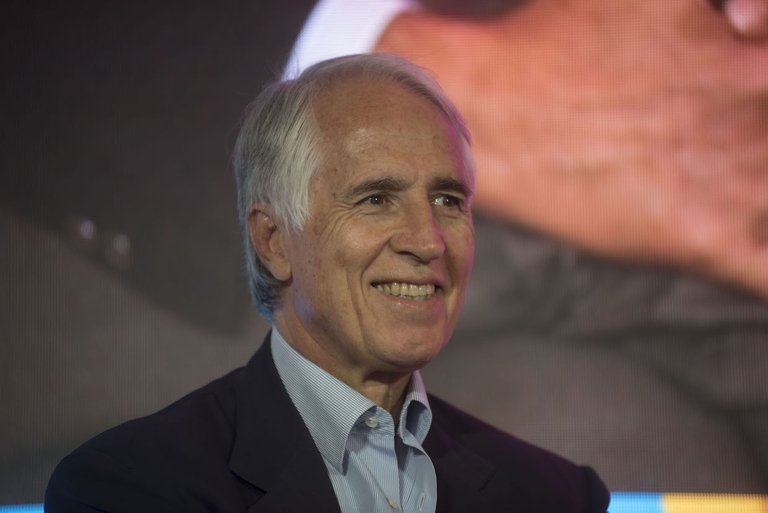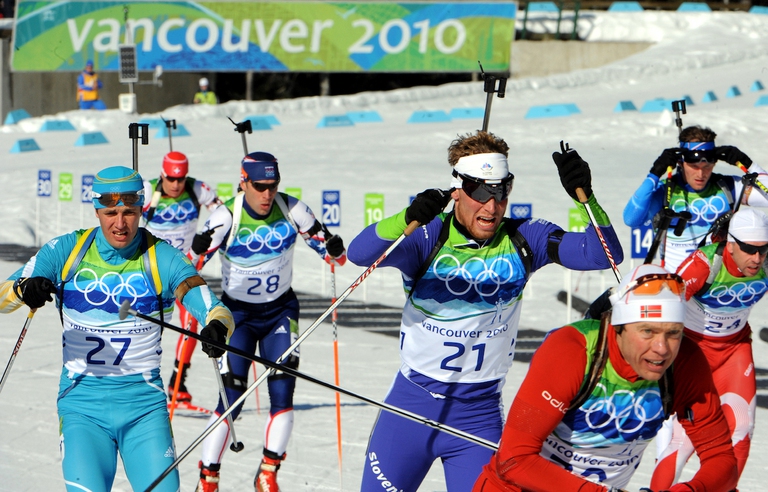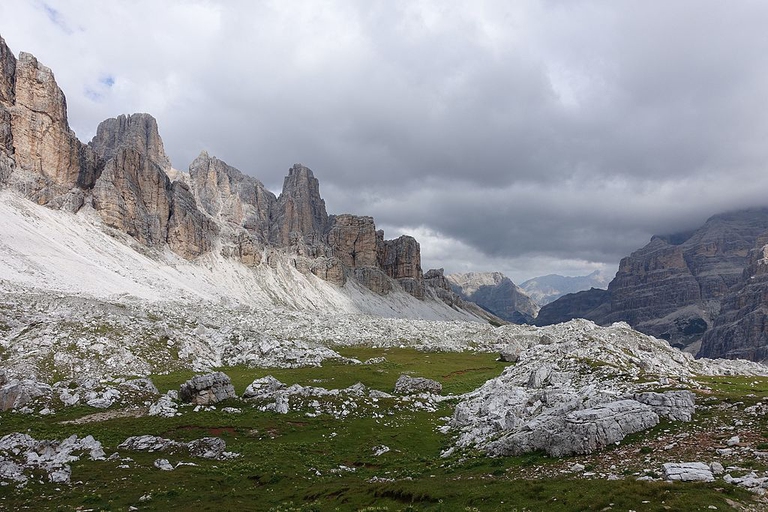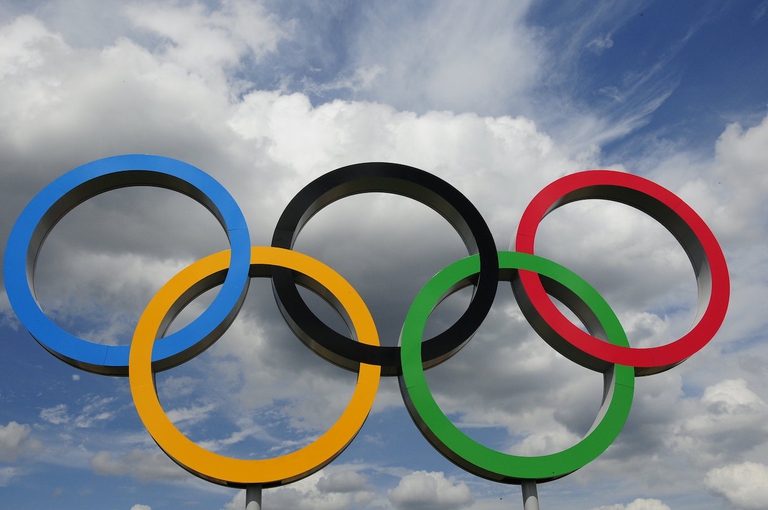
As per tradition after 12 years India held Mahakumbh, the world’s largest spiritual congregation that has been attracting pilgrims from across the globe.
The 2026 Winter Olympics in Milan and Cortina, in Italy, could be the first in history to be devoted to sustainable development, thanks to a project that aims to implement the goals of the 2030 Agenda.
On 24 June, at the 134th session of the International Olympic Committee (IOC), Milan and Cortina were announced as hosts of the 2026 Winter Olympics. At the Energy Festival that was held mid-June at the Milan Triennale, we interviewed Giovanni Malagò, President of the Italian National Olympic Committee (Comitato olimpico nazionale italiano, Coni), to understand the new criteria for evaluating bids, evermore focused on issues of sustainability.
Milano Cortina 2026 is the organising committee promoting the Italian bid for the 2026 Olympic Games, and for this purpose it followed the guidelines in the Olympic Agenda 2020, a strategic roadmap for the future of the Olympic movement, and the New Norm, which contains 118 reforms for the planning of the Olympic Games. In addition to these strictly technical guidelines, which are specific to the sports sector, the bid also incorporated the Sustainable Development Goals in the UN’s 2030 Agenda. Milano Cortina 2026 has five main objectives: games for everyone; sustainable development; cooperation in the Alpine region; promoting the Alps as an important sports hub, and, lastly, reinforcing the brand and adding value to the Olympic movement.
What traits does an Olympiad need to be considered “sustainable”?
Sustainability is a fundamental pillar of the Milano Cortina 2026 project. It means contributing to the development of innovative solutions that will impact the future, guaranteeing long-term benefits. It means promoting the existing heritage and making the precepts of the IOC’s Agenda 2020 into a reality, demonstrating – with concrete facts and appropriate dynamics – that it’s possible to host the Olympic Games while deploying responsible, environmentally conscious and socially virtuous policies.
What are the indicators you’ll be keeping in mind?
The sustainability-oriented approach will be crucial throughout the event’s entire life cycle. A special programme will be developed that outlines the active involvement of stakeholders, with the intent of increasing the engagement of third parties, as well as private, public-sector and civil society organisations. The aim is to promote a shared-value process by reinforcing the synergy between the economic and social benefits tied to the 2026 Olympic and Paralympic Games. This outcome will be made possible by the fact that Milano Cortina aims to be the first Winter Olympiad that is entirely conceived following the recommendations of the Agenda 2020, the IOC’s New Norm and the Sustainable Development Objectives stipulated by the global 2030 Agenda. Attention will be focused on infrastructure design, the procurement and management of resources, and therefore on food-recovery, and on recycling, environmental footprint and renewable energy, as well as the reuse of assets after the Games, mobility and the workforce.
The discussion around sustainable Winter Games began with the 2010 edition, in Vancouver, where green buildings, sustainable mobility structures, recycling and renewable energy became important. But the history of the Olympic Games is also full of cathedrals in the desert. How can an Olympiad effectively become an occasion for lasting sustainable development in a territory?
Compared to the past, the alignment to certain precepts has become an imperative duty, the indispensable foundation on which bids are built. This is the result of the new course enforced by the IOC, sensitive to worldwide concerns and the general situation. This consciousness – which puts sustainability and legacy at the core of projects – is worthy of praise. Of all the structures on the Milano Cortina dossier, 93% are either already there or will be temporary: an eloquent piece of data in this regard, well matched to a philosophy that feels destined to define the future. Proposals exist today only if they are accompanied by the certainty of a positive impact on tomorrow. Therefore, the development of the territory is an essential condition: cities connected with the rest of the world, the overcoming of physical, social and economic barriers barriers between centres and outskirts, the development of youth-oriented policies and of sustainable development. An unmissable and tangible chance to grow thanks to the leverage guaranteed by the largest sporting event.
Because of the climate crisis, we expect a future with ever-higher temperatures, and all that this implies in terms of water scarcity and decreasing levels of snowfall. Do you believe it is still possible to discuss sustainability in connection with the Winter Olympics, or is it an oxymoron?
Taking climate change into account is a duty and an objective to be sought after. Weather conditions, in the time of year planned for the games [6-22 February, and 6-15 March for the Paralympics, ed.] are normally very favourable, and snowfall and snow-cover are expected at the high-altitude sites. The project nevertheless provides for the drafting of a risk assessment with regards to changing climate conditions that may impact the communities involved in the Games. A department dedicated to sustainability and the Olympic legacy will be created, with the aim of correctly executing the General Plan for the implementation of the Games, and it will receive incentives to adopt specific initiatives. The Councils of Milan and Cortina, as well as the Veneto and Lombardia regions share a strong commitment to the fight against the climate crisis.
If you consider the concept of sustainability in a wider sense, to what degree are the Olympics an instrument of unity and integration between peoples and cultures?
The five rings, symbol of the Olympic Games, are the most emblematic expression of the osmosis of peoples and cultures that materialises thanks to sport, in its most important incarnation. Rivalry must be seen as an opportunity for growth, in the context of a global brotherhood where distances are closed by the desire for integration and inclusion. The Games are a celebration of civility and culture, sending a message that will never cease to leave its mark.
Siamo anche su WhatsApp. Segui il canale ufficiale LifeGate per restare aggiornata, aggiornato sulle ultime notizie e sulle nostre attività.
![]()
Quest'opera è distribuita con Licenza Creative Commons Attribuzione - Non commerciale - Non opere derivate 4.0 Internazionale.
As per tradition after 12 years India held Mahakumbh, the world’s largest spiritual congregation that has been attracting pilgrims from across the globe.
Workers in tea gardens of West Bengal, India, that produces Ctc tea for domestic consumption complain that they have been devoid of basic facilities while political parties make hollow promises during every elections which are never fulfilled.
India is in the middle of the elections, but sadly none of the politicians have uttered a word on man-animal conflict that has been devouring several lives every year.
Manipur, a state in north-east India, is still reeling under the tremors of violence that broke out last year devouring lives and paralyzing the economy.
The government of Tanzania is currently planning to evict more than 80.000 indigenous Maasai people from their ancenstral land
A new UNU-INWEH report on the global bottled water industry reveals the massive scale of this market and the lack of strict quality controls.
Isatou Ceesay founded a social enterprise that is helping to fight plastic pollution and empowering women and young people to gain economic independence.
In 2020, Mihela Hladin made a radical decision that many, in recent times, have probably considered. This is her story, with photos by Matt Audiffret.
The Brazilian government has started evicting illegal gold miners, responsible for the health emergency that has hit the Yanomami people.











